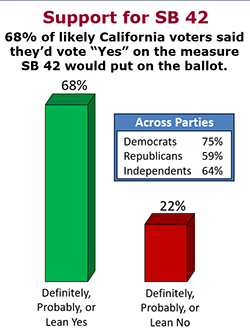There was a scene in the 1939 film "The Wizard of Oz" when,
as Dorothy cowers and quakes before the visage of the great
and powerful Oz, her little dog Toto escapes. He runs to a
curtain and pulls it back, exposing a little man pulling
levers and speaking into a device that disguises and
amplifies his voice.
After Toto unmasks him, Dorothy and her pals realize
exactly who runs Oz and just how much, or how little, he
can do to help them … or not.
Senate Bill 52 already has a name - the Disclose Act - but
we prefer to think of it as Toto's law. It begins to pull
aside the curtain, exposing those who would tell us what to
do or what to think when it comes to ballot propositions.
The Disclose Act would require the top two or three funders
of any organization - even those with lifespan of a single
election cycle - to be identified on any advertisement,
printed or broadcast.
While anyone interested in good government, or just making
good decisions, is very likely to vote for this law, there
are many against it. That's because the people behind the
curtains - those who would tell us what to do through
sometimes truthful but more often misleading political
advertisements - don't want us to know who they are. They
want to operate in the shadows or out of sight
altogether.
Who are these people behind the curtains? Giant
corporations, mainly, but wealthy individuals, too. Also
big unions, including the California Teachers Association
and SEIU. Strange bedfellows perhaps, but clearly aligned
when it comes to being able to keep their identities - and
agendas - secret.
SB 52 would:
• In TV ads, list the names of the top three funders,
in type large enough to read and for no less than 5
seconds.
• On radio ads and phone calls, the top two funders
would be announced.
• Print ads and mailers would have to carry the top
three funders.
• Any campaign committee that spends more than $1
million will have to develop a website linked from the Fair
Political Practices Committee website, with links visible
on all ads.
These rules would in no way hinder anyone's ability to
speak forcefully, loudly and frequently in favor of ballot
measures; it would, however, ensure that we know who is
doing the talking.
In the age of Supreme Court decisions that grant
corporations the free speech rights of citizens and allows
them to spend as much money as they want to influence
voters, we think this law is essential. The bill should be
a no-brainer, a slam-dunk, a chip shot. It should be passed
on a voice vote. Instead, it's likely to go down to defeat
unless regular citizens let legislators know we want - and
need - this law.




